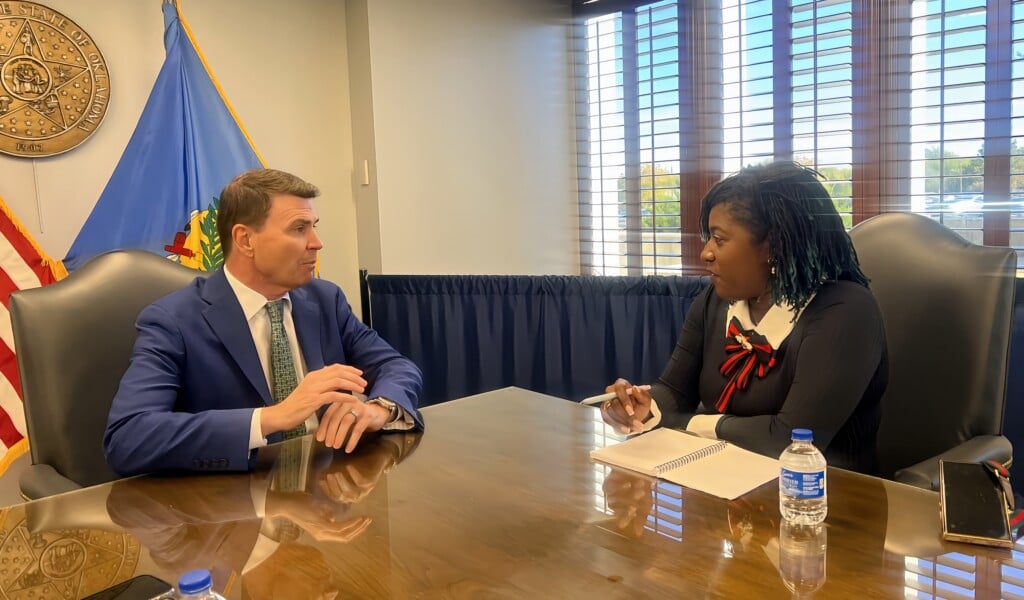Empowering Diversity: The Transformative Impact of DEI on Education, Workforce and Oklahoma’s Prosperity
Diversity, Equity and Inclusion (DEI) stand as pillars of progress in education, the workforce and the economic landscape of Oklahoma. In the dynamic realm of education, DEI fosters inclusive environments that empower students from all walks of life to thrive academically and personally. Beyond the classroom, DEI plays a pivotal role in shaping a competitive and adaptable workforce capable of recognizing the unique perspectives of individuals and viewing differences as assets rather than points of contention. The positive impacts of DEI also extend to the economic development of Oklahoma, where a diverse and inclusive workforce is crucial for attracting businesses and driving prosperity. To delve deeper into the multifaceted significance of DEI, I spoke with Oklahoma Senator Mary Boren with the aim of gaining insights into the role of DEI in shaping the state’s students, workforce and economy.
Addressing Misconceptions and Criticisms
In face of challenges, such as Gov. Stitt’s DEI executive order, signed on Dec. 13, 2023, to defund DEI efforts in public colleges, critics often misinterpret the fundamental purpose of DEI, portraying it as an obstacle to the attainment of an equitable society. However, it is essential to acknowledge the bias and privilege embedded in such perspectives. DEI is not about promising equal outcomes but ensuring equal access to opportunities and fostering an atmosphere of decency, empathy and intelligence within educational institutions and workplaces, as well as all aspects of public life. These directives are particularly relevant in Oklahoma, as the state’s demand for highly qualified workers adds urgency to the need for inclusive practices.
Contrary to the prevalent misconceptions, DEI is not synonymous with affirmative action; yet misleading talking points often create unwarranted associations between the two initiatives. Senator Boren emphasizes this distinction, stating, “DEI gives everyone the opportunity to show up to school and work with their merit. DEI opens doors for diverse backgrounds, including single parents, caregivers for older individuals, people with disabilities and those dealing with mental health issues.”
As pointed out by Senator Boren, adherence to the DEI principles is essential for breaking down unnecessary barriers, providing more Oklahomans with the chance to utilize their full potential. Thus, criticisms that draw parallels between DEI and affirmative action, as Senator Boren notes, constrict the circle of opportunities, limiting workforce prospects for those wishing to find employment in the state.
The Inclusivity Beyond Race, Gender and Sexual Orientation
DEI initiatives transcend traditional boundaries, reaching out to a diverse spectrum of individuals beyond the conventional focus on race, gender and sexual orientation. By providing support to first-generation students, those with disabilities, veterans and neurodiverse individuals, and by acknowledging the impact of socioeconomic factors on individual life trajectories, these initiatives create an inclusive and enriching learning environment for everyone.
In recognizing that diversity encompasses a wide array of experiences and backgrounds, DEI becomes a powerful tool for fostering equal opportunities and a sense of belonging in our educational institutions, workplaces and communities. This inclusive approach is essential not only for disadvantaged individuals, but for every member of our society, ensuring that every individual, regardless of their background, has the opportunity to thrive and contribute to collective prosperity.
Implications for the Economy and Community
Beyond the classroom, DEI emerges as a linchpin in economic development, and the apprehensions surrounding the ban on DEI initiatives underscore its potential impact on economic strategies and the future employability of business professionals. In an age characterized by rapid technological change, sociopolitical discord and growing globalization, having a diverse workforce capable of navigating and appreciating differences stands as a decisive competitive advantage. The exclusion of DEI not only jeopardizes the formation of global partnerships but also deters businesses from considering Oklahoma as a viable destination for expanding their market reach.
Senator Boren aptly emphasizes this point, stating, “DEI is a mainstream pathway to get the workforce to work together and to attract and retain the highest qualified workforce possible.” Senator Boren’s insight underscores the strategic role of DEI in shaping a workforce that can collaborate effectively both internally and on a global scale.
Businesses and stakeholders are increasingly recognizing the significance of fostering diverse and inclusive workplace environments for maintaining competitiveness, as they appreciate that DEI is not only important for the well-being of employees and customers but also for the broader success of economic enterprises.
“If you’re selling Starbucks,” Senator Boren says, “you’re not just selling Starbucks to one demographic. And they know that. And they know that to be competitive, they have to be targeting everybody. Everybody has to see themselves in a particular brand.” DEI is inextricably linked with market dynamics, as adherence to its core principles ensures that businesses remain relevant and have the potential to attract a wide and diverse consumer base.
Embracing the Diversity of the New Generation
As the fastest-growing workforce, millennials prioritize workplace diversity and inclusivity. Therefore, educational institutions lacking DEI programs run the risk of depriving students of a crucial competitive edge, leaving them unprepared for working with all types of individuals, including different cultures, races, abilities and more.
“If we look at the workforce and if we look at how corporate America is utilizing Diversity, Equity, and Inclusion,” Senator Boren says, “it’s basically about manners [and how to collaborate] with diverse people. How to show up at a business meeting and not say things that are horribly ignorant and horribly offensive.”
Moving Forward Amidst Challenges
It is crucial for business owners to communicate the impact of DEI on their bottom line to Oklahoma lawmakers. As noted by Senator Boren, it is important to discuss the tangible economic costs of discriminatory practices within the business community. By engaging in these conversations, and by demonstrating how divisive rhetoric and discriminatory policies hinder economic goals, business owners can collectively advocate for DEI programs.
This process should also include community members as their active participation will emphasize their personal commitment to diversity. As challenges like the ban on DEI programs persist, collaborative efforts from educators, community leaders and concerned citizens become even more vital. Through advocacy, education and grassroots movements, a united front can be formed, and this collective movement aimed at creating a more inclusive and economically prosperous Oklahoma can mitigate the absence of state-funded initiatives.
Conclusion
The recent executive order is not merely an attack on DEI initiatives, it is a threat to the very foundation of healthy communities. The recognition that equitable and inclusive schools are essential for all students to achieve their full potential, and are thus the bedrock of thriving communities, emphasizes the invaluable role of DEI in education. It is time to recognize the benefits of DEI and a wide array of its dimensions. We can work collectively to ensure that our educational systems prepare students for a future where diversity is not a challenge but a strength.
 Dr. Tamecca Rogers is Director of Diversity, Equity and Inclusion at Tulsa Technology Center. She is a writer and mom to three boys who love adventures.
Dr. Tamecca Rogers is Director of Diversity, Equity and Inclusion at Tulsa Technology Center. She is a writer and mom to three boys who love adventures.





